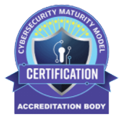
So you're in the car, you're on your way home from Starbucks, basking in the glow of consuming your triple shot, low foam, extra hot pumpkin spice latte when suddenly you realize your laptop is missing. Or maybe it's your smartphone. You drive back to Starbucks like the caffeinated lunatic that you are only to discover that no one's turned it in. So what do you do? Well, that depends on the precautions that you have or haven't taken. First, if you properly encrypted your data, password, protected access to your device, and shut down and logged off all key applications, you've got a bit more time to respond. But the first thing to do, whether you've taken these precautionary measures or not, is to notify your department that you've lost the device. This will allow them to change passwords and lock access to data and applications that a thief might gain access to via your unprotected device. They can also remotely wipe your device to make sure that no one will be able to access the data. Which is why it's also critical to back up your data on a daily basis.
Let's change all the passwords to every website you log into, starting with any sites that contain financial data such as your bank account or company data. If your laptop contained medical records, financial information, or other sensitive data like Social Security numbers, birthdays, etc., then you need to contact a qualified attorney to help you understand what you may be required to do by law to notify individuals who might be affected. Quite simply, an ounce of prevention is worth a pound of cure, so make sure you're engaging with your IT department to encrypt and backup your data, as well as put remote monitoring software on all mobile devices. Set a PIN code, lock or password requirement to access a device after 10 minutes of inactivity and get into the habit of logging off websites when you're finished using.










